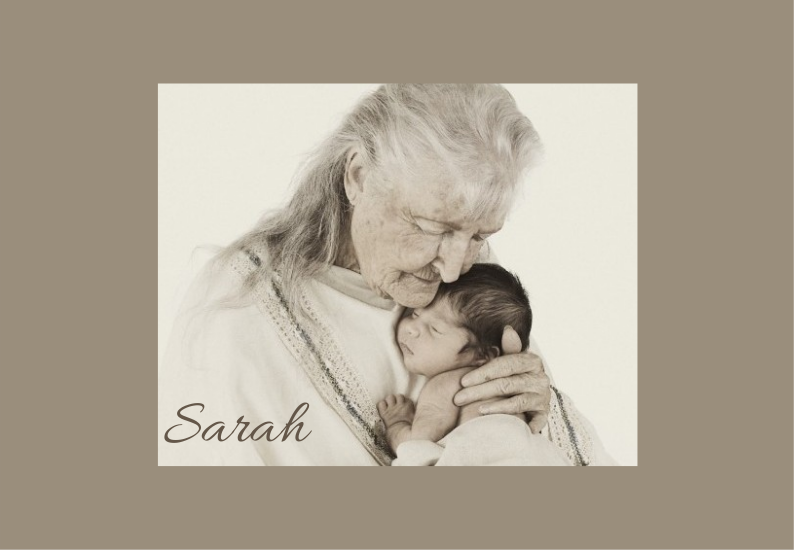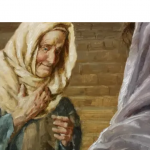“Therefore we also, since we are surrounded by so great a cloud of witnesses, let us lay aside every weight, and the sin which so easily ensnares us, and let us run with endurance the race that is set before us, looking unto Jesus, the author and finisher of our faith, who for the joy that was set before Him endured the cross, despising the shame, and has sat down at the right hand of the throne of God.” (Heb 12:1-2 NKJV)
That is our goal — run with endurance the race that is set before us, and it is a race. We must work hard, stay focused, and never quit. How can we accomplish this? By “fixing our eyes on Jesus, the author and finisher of our faith.” Whatever race we run, we must stay fixed on the goal. Whether it is a foot race, a business project, or furthering our education, we must keep focused on the goal. In the case of the Christian, the goal is eternal life; the object of our focus is Jesus. It sounds fairly easy, but we soon begin to grow weary.
While we all must run the race individually, it is much easier if we have some sort of support system. It might be an individual we respect or, even better, a group of people we can learn from and share our lives with. Where can we find people who will help us reach our goal? God, in his infinite wisdom, has provided us with the support He knew we would need; men of old listed as being part of the great cloud of witnesses, men who have been there, have struggled, worked hard, kept their eye on the prize and, through faith, have persevered to the end.
These men have been given the honor of being in the “roll call of faith” found in the 11th chapter of Hebrews: Adam, Noah, Abraham, Moses. Men we have studied about from the time we were young; men of great faith, real men with no special powers except their faith in God.
But wait, there are not just men in chapter eleven. There are a couple of women — Sarah and Rahab. Two women stood out among all the women in the Old Testament for their faith. What an honor! Rahab was a harlot, not a godly profession but this list is not about perfect people. She, like all the rest, had feelings much like our own with the same joys, sorrows and, yes, even the same temptations. Even so, God knew Rahab’s heart and He trusted her with saving the spies in Jericho. She was rewarded with the honor of being the great grandmother of King David and ultimately of Jesus Christ. “By faith the harlot Rahab did not perish with those who did not believe, when she had received the spies with peace.” Hebrews 11:31
Sarah is known for laughing at the messengers of God when they said she would have a child in her old age, yet here she is in a list of people who had great faith in God. She is given the honor of being the mother of nations, of kings and ultimately of the entire line of those leading to Jesus Christ. “By faith Sarah herself also received strength to conceive seed, and she bore a child when she was past the age, because she judged Him faithful who had promised. Therefore from one man, and him as good as dead, were born as many as the stars of the sky in multitude—innumerable as the sand which is by the seashore. Hebrews 11:11-12
God has given us these women as witnesses. We should spend time studying Sarah and Rahab to know what it is that set them apart. We can glean from them what led to the courage, the strength, and the faith that enabled them to do what they did. As witnesses of the difficulties and the joys of leading lives in service to God, these women can be part of our support system. These women can help us keep focused on Christ as we run toward the finish line that is eternity.
This study will concentrate on Sarah. We will look at her role in the family as the wife of Abraham and learn from her how we can also be women of faith.
The Story Of Sarah
Loved Sarah
I recently attended the funeral of an elderly man I did not know well. In fact, you could say I did not know him at all. By the time I met him he was in the advanced stages of Alzheimer’s. He had served as an elder in our local congregation. I knew that he was held in high esteem but it wasn’t until his funeral that I learned how much he was loved. It made me sad that I had not had the opportunity to know him. It is always a blessing to attend a funeral that makes you wish you had known the person better.
We were not there for Sarah’s funeral but we can read what those around her felt about her when she died. The two men in her life obviously loved and cherished her. It is said of Abraham in Genesis 23:2, “Abraham came to mourn for Sarah and to weep for her.” And of her son Isaac in Genesis 24:67, “So Isaac was comforted after his mother’s death.” If that was all we knew about Sarah, it would make us wonder just who this woman was and what she did to receive such devotion.
But we have more than her “obituary”. Through her husband’s life, his relationship with God, and the eventual birth of the son of promise, we learn a lot about Sarah. Abraham and Sarah experienced many exciting, sad and even fearful events together; always, with their faith in God, His leadership and protection as the foundation of their lives. And Isaac, that son of promise and the child of her old age…their bond, after she waited so long for his arrival, must have been strong. What kind of woman would evoke such tenderness from these two men? The same kind of woman who was listed in Hebrews as a woman of faith.
Childless Sarah
The first time we read of Sarah (called Sarai at the time) is in Genesis 11:30. We learn that her husband’s name was Abram and that she was childless. As a woman who has had her fair share of child bearing issues, I am always saddened to read about women of old who were childless. Sarah is not alone. Among the list of childless women of the Bible are Rebekah (The wife of Sarah’s son, Isaac) and Rachel (the wife of Sarah’s grandson, Jacob) who were both childless until God blessed them each with children. For any woman to be childless evokes emotions in her that are hard to suppress…feelings of inadequacies…feelings of loneliness…feelings of longing to love and nurture that only a baby can fulfill. These strong, God-given emotions should be embraced and encouraged. They are the very foundation that drives a woman to have children. Solomon understood this when he wrote Proverbs 30:15-16, “There are three or four things that are never satisfied: The world of the dead and a childless wife, the thirsty earth and a flaming fire.”
This childless condition is the great conflict of the story of Abraham and Sarah. Just a few verses after stating that Sarah is childless, we are told in Genesis 12:1-2 that God expects Abraham to have descendants: “Now the Lord had said to Abram: “Get out of your country, From your family and from your father’s house, to a land that I will show you. I will make you a great nation.”
How can that be? We were just told that Sarah is childless. The story has just become more interesting. The woman in me is very interested in how his descendants will become a great nation when his wife is childless. Abraham appeared undaunted. His faith was great. He did as God requested and left his home with his possessions, his wife, his nephew and went to a land he did not know…a land that God would show him.
Trusting Sarah
The next time Sarah is mentioned we are given a glimpse into the relationship between her and Abraham. She is asked to tell strangers they meet that she is Abraham’s sister. She does as she is asked, apparently without question or argument. While she truly is his half sister, telling others this leaves open the possibility of her being misused by the men she comes in contact with. Her obedience to her husband in this matter is a lesson to all of us, men and women alike. Through her obedience, she demonstrated a trust in his leadership. How important it is to trust our husband or wife and how important it is to be worthy of that trust. As a woman who has, through the agreement of marriage, put herself in a position of submission to her husband, Sarah unquestioningly does as she is asked. The love she has for him outweighs the fear she might have for herself.
In contrast, the reason Abraham asked Sarah to say she was his sister was because he feared for his life. “Indeed I know that you are a woman of beautiful countenance. Therefore it will happen, when the Egyptians see you, that they will say, ‘This is his wife’; and they will kill me, but they will let you live. Please say you are my sister, that it may be well with me for your sake, and that I may live because of you.” Genesis 12:11-13. In an attempt to save himself, he was willing to put Sarah in danger, yet she was still did as she was asked.
Thankfully, God did not leave Sarah unprotected. Even when it looked like things were going to go badly, God blessed her and Abraham. The story ends with Sarah being returned to Abraham unharmed along with many gifts. On the surface, what appeared to be a tragedy was in reality an opportunity for God to demonstrate His faithfulness towards Abraham and Sarah by His protection and His bountiful blessings.
Desperate Sarah
Eventually, Sarah begins to long for a child. We are not told that she necessarily wanted this child to help fulfill the promise God made to Abraham. It appears she desired a child to fulfill her own longing. “So Sarai said to Abram, “See now, the Lord has restrained me from bearing children. Please, go in to my maid; perhaps I shall obtain children by her.” Genesis 16:2
The longing for a child in a woman is very strong. It does not even require a biological child to fulfill a woman’s need to love and nurture. Many women have found fulfillment in raising a child “born in their heart”. Sarah thought raising another woman’s child would fill the void in her life. The obvious choice for the birth mother would be Hagar. As a slave, what was hers was her master’s. The truth was that the child Abraham and Hagar conceived did not fulfill Sarah’s desire for a child. Sarah could not nurse the child. She needed Hagar to care for him. What a sad situation to be in! Out of her desperation to fulfill her emotional need, she had given her husband to another woman. Now she had to face the reality that not only did Hagar give Abraham something she could not, the child produced was not really hers at all.
Once again, Solomon shares his wisdom demonstrating what can happen when a slave takes the place of the master. “There are three or four things that make the earth tremble and are unbearable: A slave who becomes king, a fool who eats too much, a hateful woman who finds a husband, and a slave who takes the place of the woman who owns her.” Proverbs 30:21
Influential Sarah
What follows in this passage is important for women everywhere to read and understand. The last part of verse two tells us, “And Abram heeded the voice of Sarai.” Powerful Abraham, who fought against, and had been blessed by kings, who had been spoken to by God Himself, listened to his wife. Wives wield a lot of power and influence over their husbands. When we read about the worthy woman in Proverbs 31, the very first quality that is given her is “the heart of her husband safely trusts her.”
We need to be careful about the advice we offer our husbands, about the requests we make of our husbands. Our husbands need to be able to trust us. We need to be the one person they know have their best interests at heart. As powerful a man as he was, Abraham was influenced by the desires of his wife. She wanted a child of her own. He did what she asked him to do to get what she wanted. While we later learn that all of this was part of God’s plan, neither they at the time nor we at our first reading understood what was really happening. All we saw was a woman desperate for motherhood and a husband willing to do whatever it took to make her happy. Let us all learn the lesson. Make wise requests of our husbands looking for what is best for him and for the whole family.
As we learn from the text, this child did not fulfill Sarah as she thought. In fact, disharmony was brought into the family before the child was even born. Sarah was mocked and laughed at by Hagar. She subsequently treated Hagar and the child, Ishmael, with resentment and cruelty. This was not quite the picture of motherhood she had envisioned. “ Then Sarai said to Abram, “My wrong be upon you! I gave my maid into your embrace; and when she saw that she had conceived, I became despised in her eyes. The Lord judge between you and me.” So Abram said to Sarai, “Indeed your maid is in your hand; do to her as you please.” And when Sarai dealt harshly with her, she fled from her presence.” Genesis 16:5-6
Move ahead 14 years, and we see the subject of Abraham’s promised heir come up again. It appears that Abraham thought the problem was solved. He had a son. This son would be the descendant God had promised him, but according to Genesis 17, that was not the case. God restated the promise he gave Abraham so many years ago. God said of Sarah, “And I will bless her and also give you a son by her; then I will bless her, and she shall be a mother of nations; kings of peoples shall be from her.” Genesis 17:16
Abraham’s reaction to this is reasonable…reasonable if he was talking to anyone except God. Abraham laughed. He laughed hard. We are told that he fell on his face laughing. He didn’t stop there. He said to himself (I picture him muttering under his breath), “Shall a child be born to a man who is one hundred years old? And shall Sarah, who is ninety years old, bear a child?” Genesis 17:17
The whole idea sounded preposterous to him. He knew how reproduction worked. What God was saying did not fit what he knew to be true. Even so, God did not alter His plan. He did not need Abraham to approve of His plan. His plan would happen whether Abraham agreed or not.
Submissive Sarah
When we get to Genesis 18, Sarah, hiding in the tent, overhears the three visitors as they give Abraham a specific time for his son to be born. Before we get into that though, take a look at the preparations Abraham and Sarah went through to prepare food for these guests. When the three visitors arrived, they needed refreshment and a place to rest. After the three men accepted the invitation from Abraham to stay and rest awhile, Abraham got busy organizing the refreshment. Verse six tells us, “So Abraham hurried into the tent to Sarah and said, ‘Quickly, make ready three measures of fine meal; knead it and make cakes.’ ” Sarah did as she was told.
That is a little hard for us modern women to hear. We are told on a daily basis that we are to be independent, take charge women. We are told that we are not to be in submission to our husbands and that everything must be decided democratically, with each of us, husband and wife, having a 50/50 say in what we will and will not do. Again, back to trusting each other, Abraham trusted Sarah to do what he asked. She would not embarrass him by throwing a little fit or refusing to obey. She did it, and she did it as requested. Quickly. As a result, Abraham was able to confidently present his guests with a proper meal. As the husband of the worthy woman in Proverbs 31, “Her husband is known in the gates, When he sits among the elders of the land,” Abraham, because he knew he could trust Sarah, was able to interact with these men in a way that was dignified and worthy of his reputation.
Laughing Sarah
“Then they said to him, ‘Where is Sarah your wife?’ So he said, ‘Here, in the tent.’ And He said, ‘I will certainly return to you according to the time of life, and behold, Sarah your wife shall have a son.’ (Sarah was listening in the tent door which was behind him.) Now Abraham and Sarah were old, well advanced in age; and Sarah had passed the age of childbearing. Therefore Sarah laughed within herself, saying, ‘After I have grown old, shall I have pleasure, my lord being old also?’ And the Lord said to Abraham, ‘Why did Sarah laugh, saying, “Shall I surely bear a child, since I am old?” Is anything too hard for the Lord? At the appointed time I will return to you, according to the time of life, and Sarah shall have a son.’ But Sarah denied it, saying, ‘I did not laugh,’ for she was afraid. And He said, ‘No, but you did laugh!’ ” Genesis 18:9-15
After the men were refreshed, they told Abraham that Sarah would have a son, but this time he is given a time, “according to the time of life” or “this time next year.” As far as we know, this is the first time Sarah has actually heard the prophecy herself. It is interesting that her reaction was the same as Abraham’s. She laughed, although not falling down on her face. We are told she laughed to herself. When questioned why she laughed, she denied it. But there was no hiding it from God. He knew she laughed. She knew she laughed. Was this a sign of a lack of faith? Possibly. At least for the moment. But remember, we are told in Hebrews 11:11 “By faith Sarah herself also received strength to conceive seed, and she bore a child when she was past the age, because she judged Him faithful who had promised.” Whether it was a momentary lack of faith on her part or just a human reaction to a situation she thought was out of the realm of all possibility, she ultimately did conceive, gave birth, and is given credit for believing Him “who had promised”.
The statement the Lord made after Sarah laughed probably stopped her laughing immediately. “Is anything too hard for the Lord?” (v 14). We have the benefit of learning an important truth from this witness among our great cloud of witnesses. She thought that having a child in her old age was too difficult, but she learned there is nothing too difficult for God. We can put all our faith in Him because He is the Creator of all. There is never a reason to doubt Him because He is all powerful…powerful even to the point of knowing our very secret thoughts. He knew that Sarah laughed to herself. Even though she denied it, He knew. Through Sarah, a witness God has given us, we learn that God can do anything.
Blessed Sarah
“And the Lord visited Sarah as He had said, and the Lord did for Sarah as He had spoken. For Sarah conceived and bore Abraham a son in his old age, at the set time of which God had spoken to him. And Abraham called the name of his son who was born to him—whom Sarah bore to him—Isaac. Then Abraham circumcised his son Isaac when he was eight days old, as God had commanded him. Now Abraham was one hundred years old when his son Isaac was born to him. And Sarah said, “God has made me laugh, and all who hear will laugh with me.” She also said, ‘Who would have said to Abraham that Sarah would nurse children? For I have borne him a son in his old age.’ ” Genesis 21:1-7
What a happy day! Everything happened just as God said it would. The child of promise, Isaac, is born…no need for any help from Abraham, Sarah or Hagar. God said Abraham would become a father and the child’s mother would be Sarah. That is exactly what happened.
I love the quote from Sarah, “God has made me laugh, and all who hear will laugh with me.” (v 6) Laughter for joy, not the mocking laughter of Hagar, or the disbelieving laughter of Abraham and Sarah, but the joyous laughter that comes when a lifelong dream is realized. A long waited for, newborn baby is nursing at Sarah’s breasts.
I find it interesting that she said, “Who would have said to Abraham that Sarah would nurse children?” (v 7) When she was trying to get a child through her servant Hagar, she seemed to be content to have the child delivered on her knees. Hagar would carry the baby. Sarah would raise him as her own. But, as she found out, she could not care for the child without Hagar’s help. With this child, the child of promise, she was able to care for him completely, nursing him at her breast. A complete fulfillment of the desire of motherhood. She was truly blessed.
Living Like Sarah
After studying the life of Sarah, what can we learn to help us as we run our race? 1 Peter 3:1-6 mentions Sarah’s obedience to her husband and encourages us to follow her example.
“Wives, likewise, be submissive to your own husbands, that even if some do not obey the word, they, without a word, may be won by the conduct of their wives, when they observe your chaste conduct accompanied by fear. Do not let your adornment be merely outward—arranging the hair, wearing gold, or putting on fine apparel— rather let it be the hidden person of the heart, with the incorruptible beauty of a gentle and quiet spirit, which is very precious in the sight of God. For in this manner, in former times, the holy women who trusted in God also adorned themselves, being submissive to their own husbands, as Sarah obeyed Abraham, calling him lord, whose daughters you are if you do good and are not afraid with any terror.”
“Wives, likewise…”what follows these words is dependent on what was said previously. Let’s take a look at what we are to be doing “likewise”. The previous chapter, 1 Peter 2:9-10, has the following words: “But you are a chosen generation, a royal priesthood, a holy nation, His own special people, that you may proclaim the praises of Him who called you out of darkness into His marvelous light; who once were not a people but are now the people of God, who had not obtained mercy but now have obtained mercy.”
What a positive, uplifting, victorious description Peter gives of a Christian! What more could be said? We have arrived. But wait. Before we all relax and “relish in our glory”, keep reading. As a chosen generation, a royal priesthood and a holy nation, we are expected to be submissive. All of us, men and women, are to be submissive to the government.
Therefore submit yourselves to every ordinance of man for the Lord’s sake, whether to the king as supreme, 14 or to governors, as to those who are sent by him for the punishment of evildoers and for the praise of those who do good. 15 For this is the will of God, that by doing good you may put to silence the ignorance of foolish men…” 1 Peter 2:13-15
We are to be submissive to our masters.
“ Servants, be submissive to your masters with all fear, not only to the good and gentle, but also to the harsh. 19 For this is commendable, if because of conscience toward God one endures grief, suffering wrongfully. 20 For what credit is it if, when you are beaten for your faults, you take it patiently? But when you do good and suffer, if you take it patiently, this is commendable before God. For to this you were called, because Christ also suffered for us, leaving us an example, that you should follow His steps:” 1 Peter 2:18-20
Not exactly the picture of a chosen generation or a royal priesthood or a holy nation that the average person would think of, but precisely what God thinks of and expects from His chosen generation, His royal priesthood and His holy nation. “Likewise”, chapter three verse one tells us that women are to be submissive to their husbands.
Why should a chosen generation, a royal priesthood, and a holy nation be required to be in submission to anyone? 1 Peter 2:12 “…that when they speak against you as evildoers, they may, by your good works which they observe, glorify God in the day of visitation.” Those who submit to the government will silence the ignorant men. Those who submit to their masters imitate Christ as He suffered without cause. Those who submit to their husbands may turn their unbelieving husbands towards God. Every act of submission is all to the glory of God.
Submission then is not a punishment or a degrading position as the worldly person will tell us. Submission is for the purpose of glorifying God. Submission is an act of love we offer God. When we consider it our privilege to be submissive because we are a chosen generation, a royal priesthood, a holy nation, we no longer look at it the way the world looks at it. We can confidently submit ourselves to our government, our masters and our husbands knowing that this is the race we are running. As we keep our eyes on Jesus, looking to Him as the perfect example of submission, as He, the Creator, submitted Himself to the creation, we can boldly face what comes our way, even if it means harsh, unfair treatment.
Unless we have had great role models in our lives, we do not typically learn how to be submissive. Our society teaches us that we are to be strong, independent, fearless women in need of no one. Looking to ourselves for all our needs; protesting the government; making our voices heard in the workplace; disregarding our husbands. This is such a contrast to what we just read in first Peter. Strong? Yes, but our strength comes from God. Independent? Only in the sense that we are willing to follow God regardless of what those around us are doing. Fearless? Yes, but our courage comes from our trust in God, not in ourselves.
Words like chaste, gentle, and quiet spirit describe the woman God wants us to be. Chaste, not just sexually, although it is definitely included, but chaste in our talk and our mannerisms, above reproach, not giving anyone a reason to talk or think evil of us. Being gentle is the opposite of being aggressive, demanding or hard to get along with. A quiet spirit is one who is calm, simple, uncomplicated. All of these words describe a woman who is honest yet kind, righteous yet humble, strong yet loving, submissive yet self controlled.
It is easy to live for self, to live as if no one can tell us what to do. It takes a strong woman to willingly submit to her husband. That’s what Sarah was — a strong woman. She obeyed Abraham, calling him lord. She honored God by submitting herself to Abraham. No wonder Abraham and Isaac were so devoted to her.
The 7th verse of chapter 3 tell us how husbands are to respond to their wives. “Husbands, likewise, dwell with them with understanding, giving honor to the wife, as to the weaker vessel, and as being heirs together of the grace of life, that your prayers may not be hindered.”
The same husband who is submitting to his government and to his master is to be understanding of his wife. He is commanded to not treat her harshly or unfairly but as one who is helping him in his race. In essence, by regarding his submissive wife with the understanding and honor she deserves, he is not lording it over her but leading her and encouraging her to put Christ first in her life. What a beautiful picture of a beautiful relationship. This relationship, designed by God, would include two people who trust in each other, love each other, and want nothing more than for both to spend eternity with their heavenly Father.
This is what it means to be a chosen generation, a royal priesthood, a holy nation. Everyone being mindful of others, looking for the best in others, loving others. When we are submissive to our government and our masters, when wives are submissive to their husbands, When husbands are honoring their wives, the result is just as Peter describes in 1 Peter 3:8-9:
“Finally, all of you be of one mind, having compassion for one another; love as brothers, be tenderhearted, be courteous; not returning evil for evil or reviling for reviling, but on the contrary blessing, knowing that you were called to this, that you may inherit a blessing.”
As we look to Sarah and learn from her life, let us be comforted knowing that she is in that great cloud of witnesses and part of that group of ordinary people who chose to follow God. They were not perfect, but accomplished great things because they believed in God…people just like us who give us the confidence that we can choose to follow God and remain faithful to Him no matter what comes our way. As we all run the same race and reach for the same goal, let our lives be a light, a witness to others, encouraging them to not grow weary or lose heart just as we have been encouraged from our witness, Sarah.








Most of the songs i have written have a link on the page that lets you listen to it being sung.
What a great bible study! And the connections with wives and submission is very good. Thanks.
I ALSO HAVE TO THANK YOU FOR ANOTHER THING. I just came back from doing the crafts at a 2-week VBS in Turin, Italy. The teaching for those weeks was on the life of Paul and I used your POP-UP book on PAUL. (I got the words translated into Italian before printing the pages and traveling there.) and the kids (and Pastor) loved it. Two years ago, I used the SEVEN MIRACLES OF JESUS Pop- up book at the same Italian VBS. This year, the Pastor liked them so much, he said a pop-up book should be a requirement for the VBS (Called EBC – English Bible Camp in Turin). I don’t know what the theme will be next year, but…….
Thank you for sharing this with me. I love hearing that folks are using the activities.